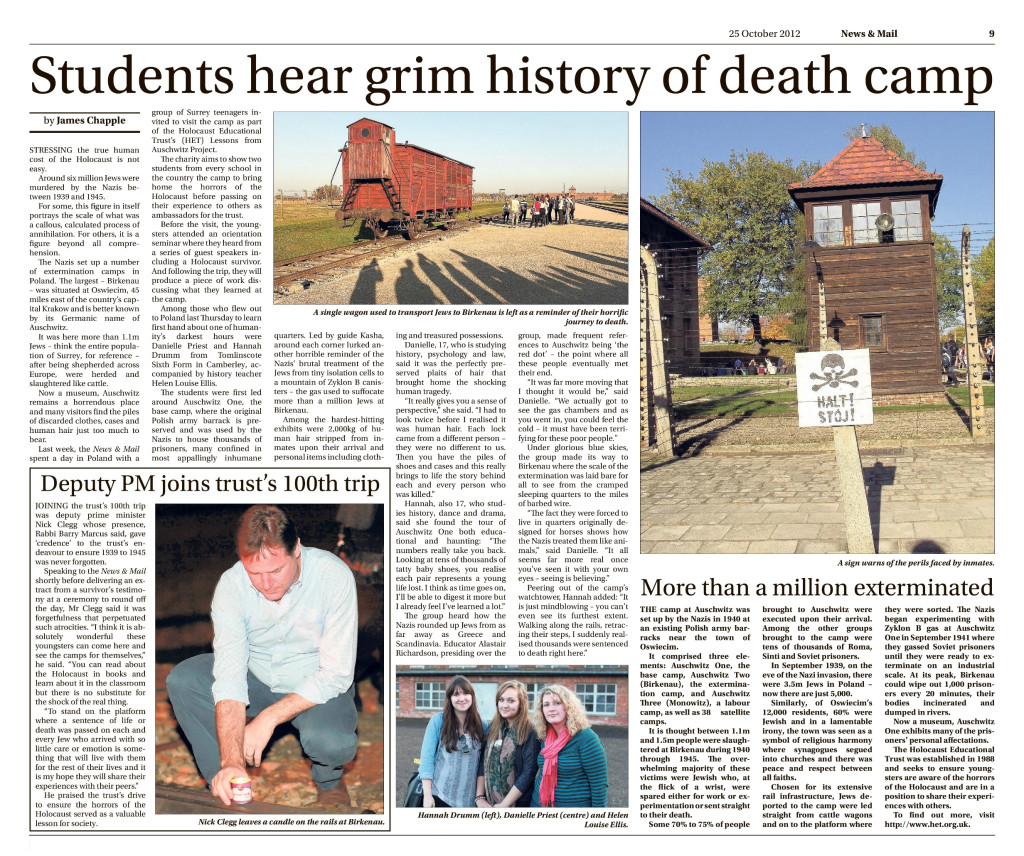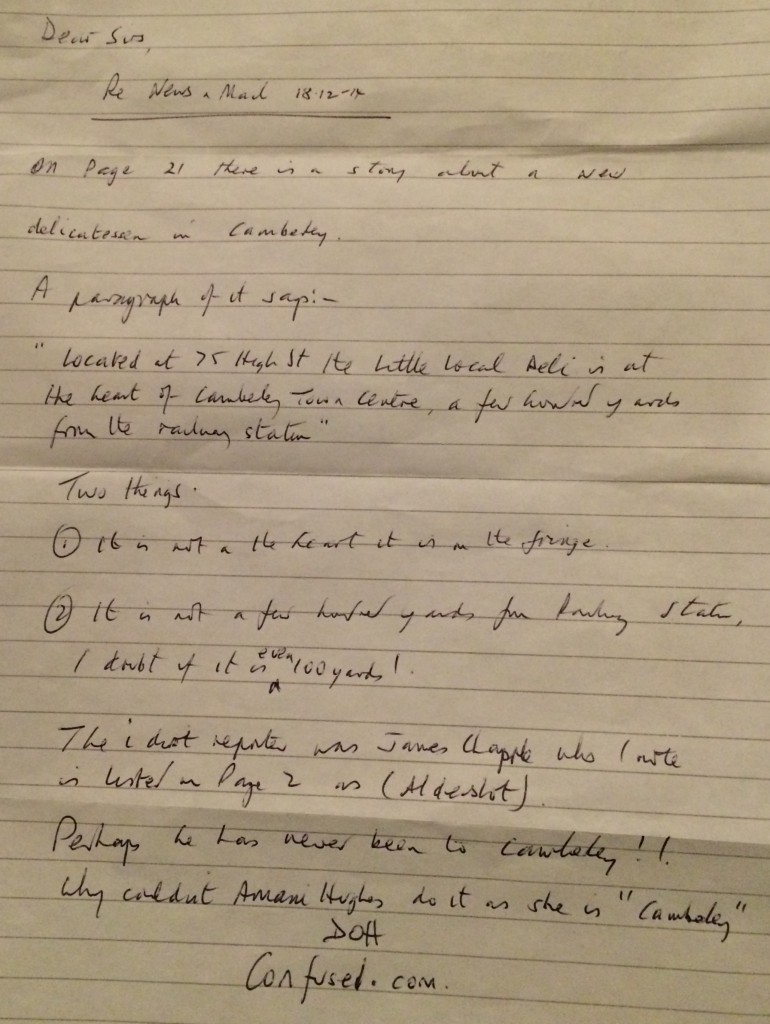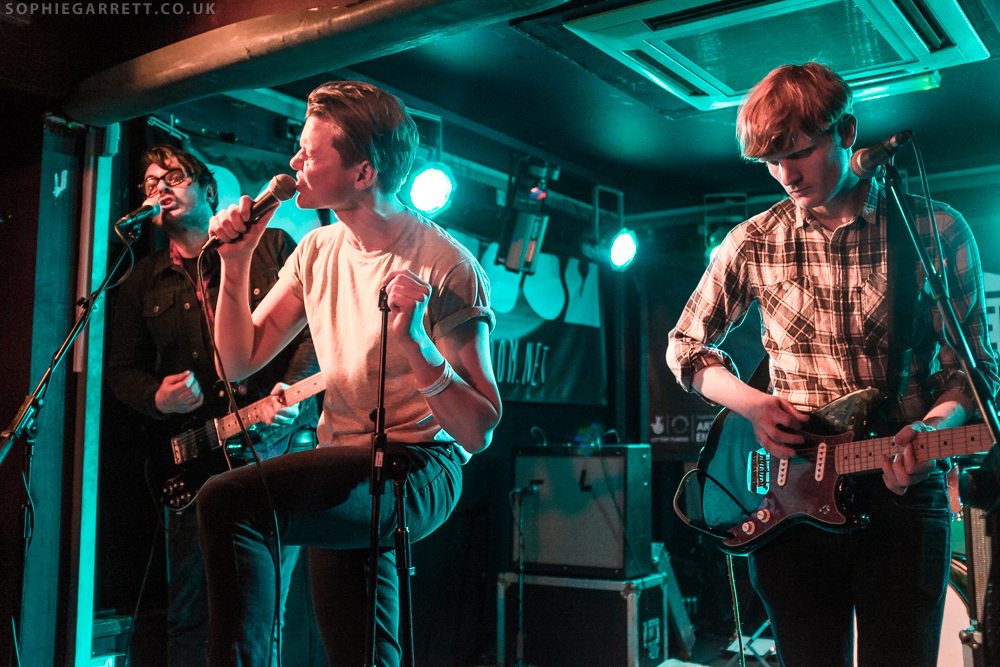
The jangly indie-pop stylings of Frankie & The Heartstrings saw Independent Venue Week (IVW) celebrations at The Boileroom in Guildford kick up a notch on Wednesday (January 28).
The Sunderland quintet have built a small, but loyal, following since the band’s chance encounter in a bar on the city’s left bank in 2008.
Three years’ hard graft later, 2011 debut album Hunger charted at number 32 – earning Frankie and co knowing nods on the national and international stage.
Their 2013 follow-up The Days Run Away spawned single Nothing Our Way and fan favourite Everybody Looks Better (In The Right Light).
In the intervening period, playing second fiddle to the likes of the Kaiser Chiefs, The Vaccines and Florence And The Machine did little to stymy a steady flow of glowing reviews.
Ably supported themselves by Wiker, Future Talks and the anarchic Arctic Monkeys-esque sneer of Woking rockers The Sheratones, there was an understandably fuzzy feeling of community at the venue on Wednesday night when the band took to the stage, slap-bang in the middle of IVW (January 26 to February 1).
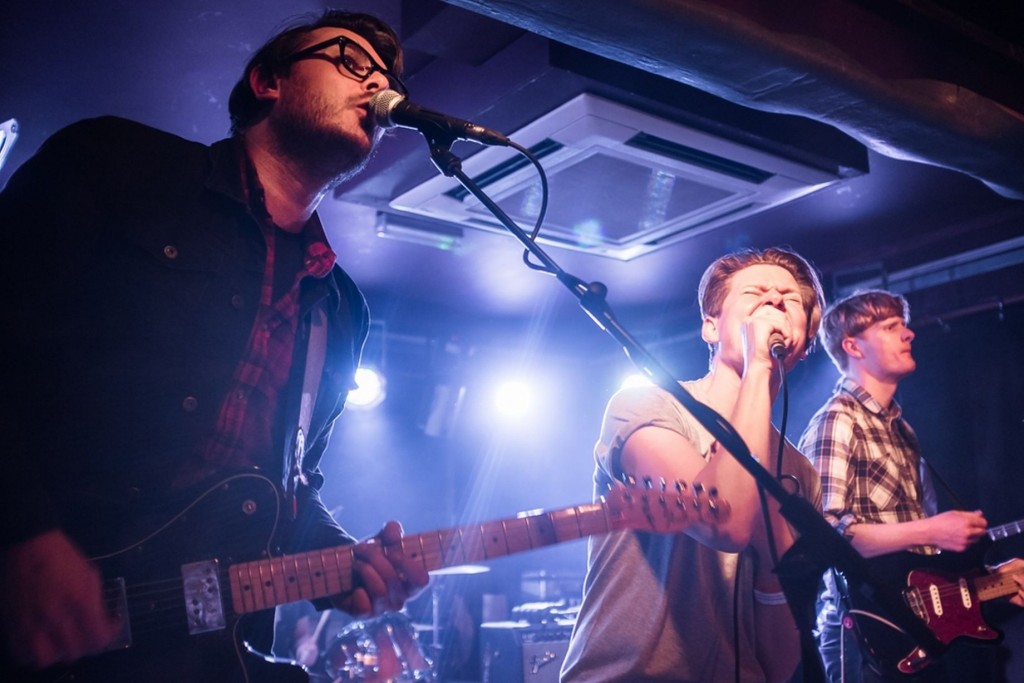
It was vocalist Frankie Francis who perhaps summed up the real importance of initiatives like IVW most succinctly, quipping in his Mackem burr: “They’ve got a noodle bar here – perhaps all venues should have noodle bars!”
In many ways, there is arguably something ever-so-slightly immaterial about the actual gigs held as part of IVW, which aims to celebrate everything that is so unique and often unusual about the country’s slew of embattled independent music venues.
The Boileroom has been the last bastion of Guildford’s alternative music scene for nearly a decade and continues to thrive, despite a myriad of obstacles which have, at times, put the Stoke Fields venue at risk.
However, from Wiker through Future Talks, The Sheratones and finally Frankie, there is a sense that the crowd as much as the bands understand just what is at stake if support dwindles for venues such as The Boileroom.
And it speaks volumes of the venue’s quality and draw that it was able to swing, as part of IVW, a gig on Friday (January 30) by Weybridge chart toppers You Me At Six, which saw thousands of fans try to bag just a couple of hundred tickets.
Dapper Frankie frontman Francis quickly makes the stage at The Boileroom his own, strutting about with an air of confidence and vigour you might expect from a young Mick Jagger.
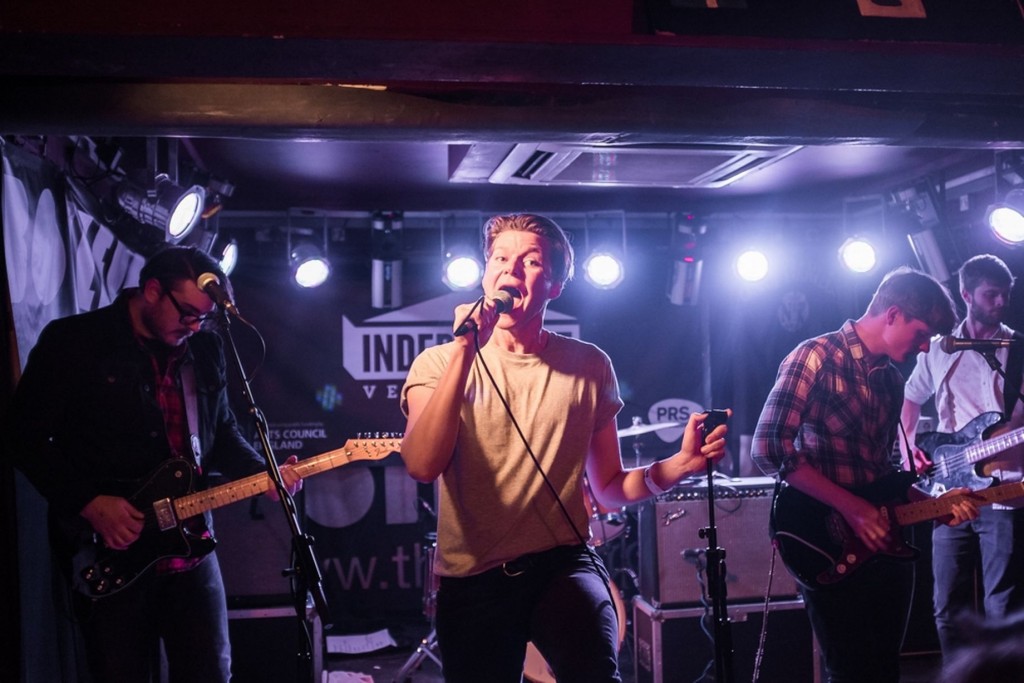
He is flanked by guitarists, founder member Michael McKnight and ex-Futureheads axeman Ross Millard, who take it in turns to briefly tear away from the band’s twee verse-chorus barrage with the occasional flash of virtuosity.
Rhythm section, bassist Michael Matthews and drummer Dave Harper, tie the band’s tight sound together, elucidating a handful of passionate sing-alongs as the gig reaches a crescendo after a slightly slow start.
Choice cuts from Hunger such as Fragile and the title track bring the band’s 45-minute set to a raucous, yet also understated finale.
The band pay their respects with a nod to the IVW before they stroll off stage and out into the crowd to wind down with their loyal fans.
It’s such a simple gesture, but one that can only be achieved at a venue like The Boileroom – and one their fans, most importantly, will remember and cherish.
James Chapple
Pictures by Sophie Garrett.
Originally published on Get Surrey, 29/01/15

